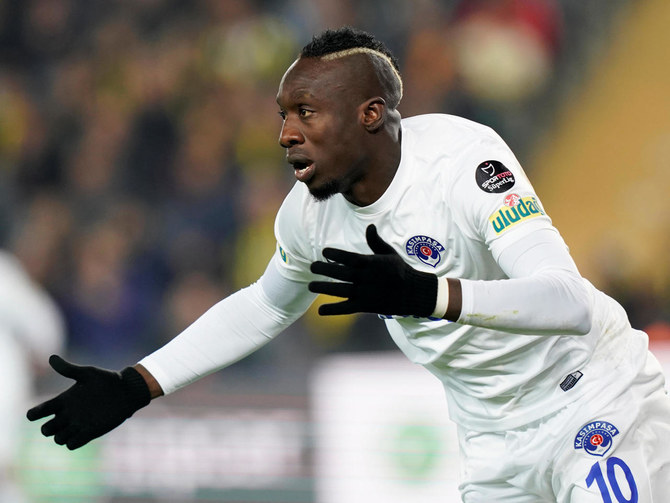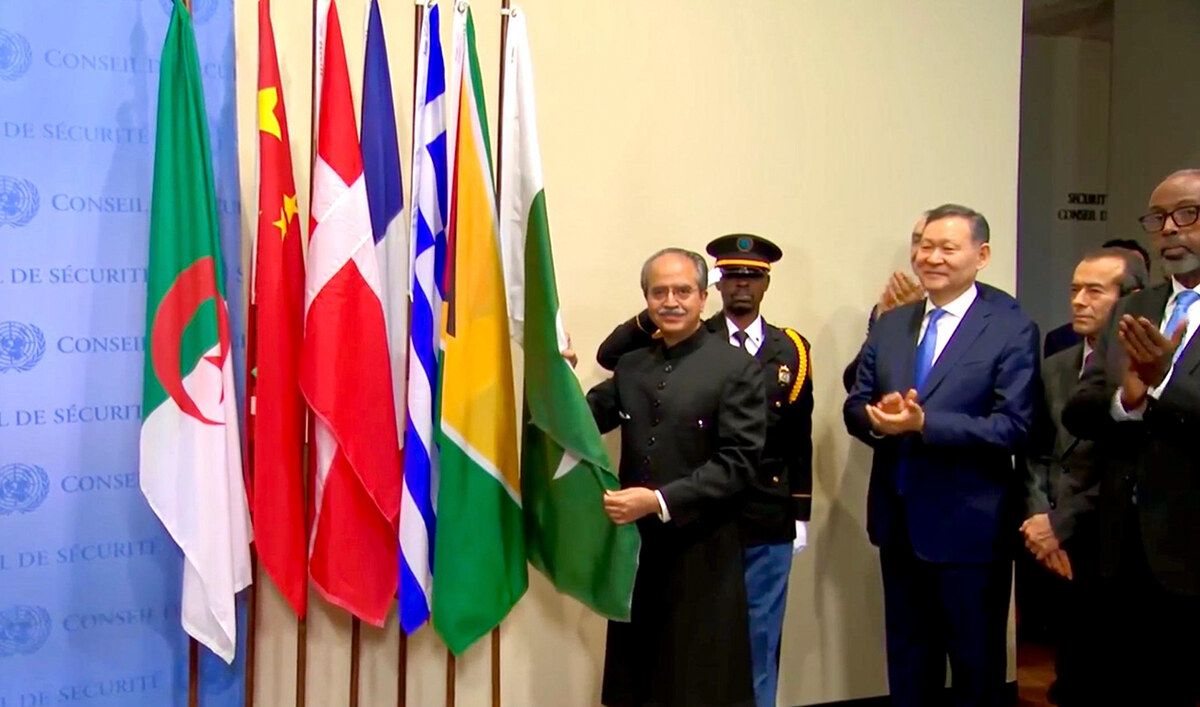ANKARA: Controversy surrounding an official’s alleged racism during a Champions League match between Paris Saint-Germain and Istanbul Basaksehir has not only fueled the simmering row between Ankara and Paris but also stirred debate in Turkey about the country’s own sporting culture.
Turkish President Recep Tayyip Erdogan, who has close ties with the owners of the Basaksehir club, said after the match: “This incident is the result of recent racist discourse in France. France has regrettably become a hotspot for racism.”
During the game on Tuesday, Basaksehir’s assistant coach, Pierre Webo, was shown a red card for protesting against a refereeing decision. A Romanian fourth official then allegedly pointed to the Cameroonian and used a racist description.
The match was suspended in the 13th minute after both teams left the pitch and was replayed the following day.
European football’s governing body UEFA is expected to launch an investigation into incident.
“Racism, and discrimination in all its forms, has no place in football,” UEFA said in a statement.
The MHP, Turkey’s ultra-nationalist party and a coalition partner of the ruling government, tweeted “No to Racism” photos in protest at the incident.
However, for many Turks, ethnic tensions and racism in sports remain a source of concern.
Mert Yasar, a lawyer specializing in sports law, said racist incidents involving managers, competitors and fans have been a familiar problem over the years, with many of those responsible enjoying complete impunity since federations and prosecutors fail to hand down fines or launch investigations.
“Our record in this area is getting worse,” he told Arab News.
The football team of Kurdish-majority Diyarbakir city has increasingly become the focus of nationalist hostility, with the club accused of being linked to the outlawed Kurdistan Workers’ Party (PKK).
Players are exposed to almost daily harassment by rival fans, especially after the club’s rebranding as Amedspor in 2014, for using the Kurdish name for Diyarbakir.
Turkish nationalists generally shout “Kurds out; this is Turkey, not Kurdistan,” while the team’s Kurdish supporters are occasionally banned from attending matches.
In 2014, Deniz Naki, an Amedspor player with a Kurdish background, was the target of a racist attack in Ankara. Two years later, he was banned for 12 games over a Facebook post described as “ideological propaganda.”
Two years later, Amedspor executives were assaulted after attending a match in the capital.
The same year, Amedspor players carried a giant banner on to the pitch calling for an “end to violence in the region that kills children who should instead attend the matches.” The players were accused of “terror propaganda.”
Last week, football commentator Emre Bol told pro-government channel A TV that Galatasaray’s Senegalese star Mbaye Diagne “was eating crocodile in Senegal, then came here and became a footballer.” Galatasaray immediately took legal action against Bol.
In 1999, a UK-born striker, Kevin Campbell, left Trabzonspor club after its chairman, Mehmet Ali Yilmaz, called him a “cannibal.”
Campbell said that it was the “biggest insult” he had ever received.
“No apology can heal my injury,” he said after Yilmaz told Turkish journalists: “We bought a cannibal who calls himself a striker.”
Fans waving bananas during matches routinely make headlines, with no stern warnings or sanctions in return.
Racism is sometimes rewarded in sports.
Riza Kayaalp, a well-known Turkish wrestler, made headlines for racist remarks against Armenians and Greeks in August 2013 following the anti-government Gezi Park protests.
The Olympic medalist was suspended for six months by a FILA judge, but the decision was later overturned. Kayaalp was recently appointed undersecretary in the Youth and Sports Ministry.
According to Mert Yasar, Turkey’s campaign against racism is a state responsibility.
“All international conventions and constitutions oblige Turkey to initiate anti-discriminatory measures in sport. The sports ministry as well as the sporting federations and committees should combat the racist attacks in this area,” he said.
“Several international federations have the right to halt the membership of members that don’t fight racism effectively or which fail to conduct thorough investigations. They can even ban participation of these Turkish federations in international events if racism still enjoys impunity.”
























